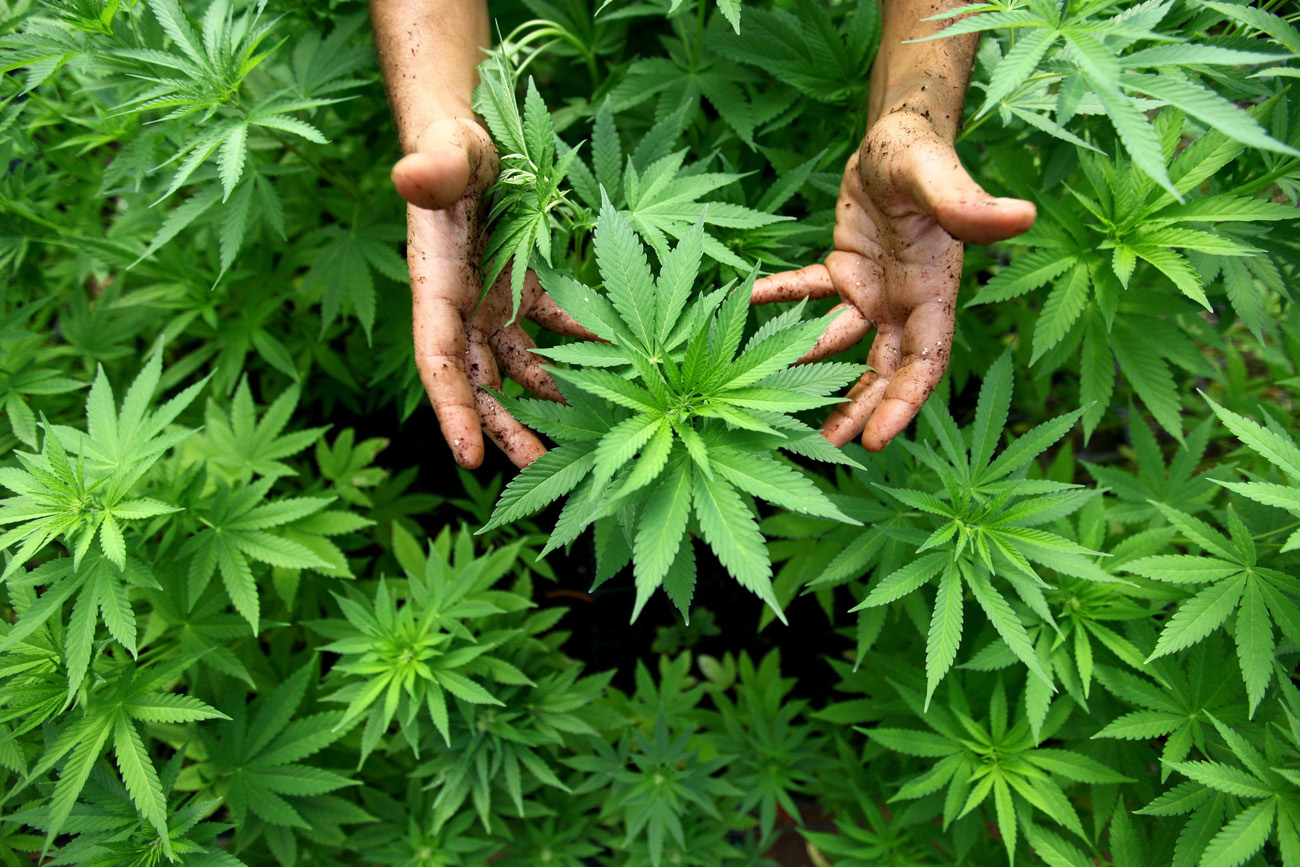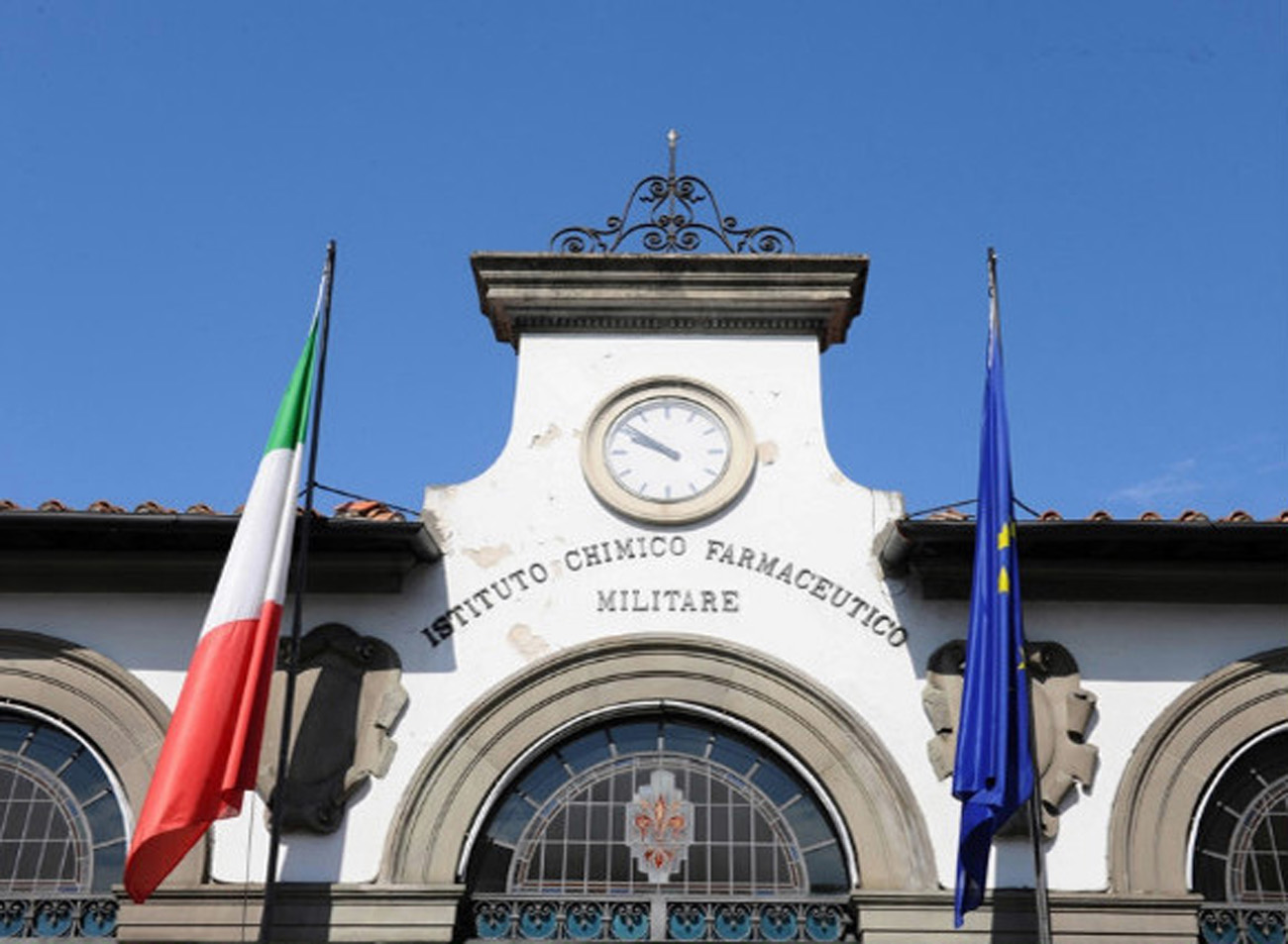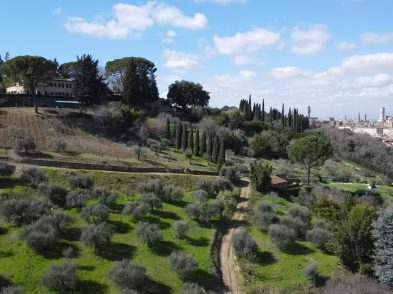In recent months, the “cannabusiness” has caught on throughout Italy as shops take to the streets and home delivery becomes popular in the main cities. According to the United Nations Office on Drugs and Crime (UNODC), Italy comes in as the world’s twelfth biggest marijuana smoking country, with 9.2 per cent of the population using the recreational drug. But just how legal is the new trend?

Hemp growing is nothing new in Italy. In the early 1900s, canapa was used to make ropes, sails and hardy textiles before cheaper man-made fabrics like nylon came on to the scene. The 1975 anti-drugs law was the straw that broke the crop’s back, banning the cultivation of cannabis indica and making life difficult for cannabis sativa farmers.
The new Law 242, passed in 2016, titled “support and promotion of the hemp cultivation and industry, Cannabis sativa L.” strives to bring hemp back to Italy’s farming scene through protective measures, more straightforward legislation, the possibility of growing hemp without needing to have authorization and public financing for the cultivation and introduction of processing facilities. The side effect has been the loophole in the law for “cannabis light”, something immediately spotted by farsighted entrepreneurs as a way to sell legally grown flowers, which are not mentioned at all in the new legislation.Hemp growing is nothing new in Italy.
As far as cultivation is concerned, cannabis sativa L. with a THC (tetrahydrocannabinol is the main psychoactive part of the crop) content under 0.2 percent may be grown “without the need for authorization”, as long as the resultant hemp is used in food and cosmetics, semi-processed products such as fibres, oil and fuel supplied to industries and craft activities, green manure, bioengineering and bioconstruction, phyto-purification, plant nurseries, or cultivation for research by public or private institutions. Article 3 of the 242/2016 Law clearly states that the grower is obliged to keep documents detailing the seeds for at least 12 months as well as keeping the invoice for 10 years.
The new Italian “cannabusiness” began with EasyJoint, a Parma-based company founded in May 2017. Boasting an 85 percent share of Italy’s legal weed industry, the business started out by selling cannabis flowers over the Internet before developing a network of franchised shops all over the country that retail hemp derivatives, such as pasta, cookies and olive oil as well as cosmetics. In just eight months, the firm has made a revenue to the tune of 1,754,160 euro.
Campo di Canapa, in via Giacomo Leopoldi, was the first store to sell Easy Joint’s Eletta Campana’s cannabis flowers in Florence back in May 2017. Now it’s expanded its range to include a hemp shop (expect hemp flour and infused olive oils as well as bags, cosmetics and clothing) and a well-stocked seed and gardening section. Selling everything from teas to t-shirts, Cannabis Store Amsterdam (www.cannabisstoreamsterdam.com) now has more than 50 shops in Italy with two outlets in Florence, in via del Corso and via dei Cerretani, in addition to one in Scandicci and others about to open in Prato and Viareggio. This chain caters to the city’s tired tourists in search of a different type of tiramisù, or just a “light” lollipop.
Cannabis flowers can even be delivered to your door by the likes of Widora, a company that vows to deliver legal weed within an hour. Tempting-sounding options, starting at 20 euro for 2 grams, include Alpine, with its “woody and spiced aromas with a touch of pine”, OG Kush, “enticing fragrance with intense notes of tropical wood and spices”, and Sweet Kiss “the queen of CBD wood, winner of the first Italian Cannabis Cup”.
Tuscany’s legal hemp growers are on the up, too, unsurprisingly given the demand. In the heart of Chianti Classico, at Panzano, historic winery Castello di Rampolla has planted hemp for the dual purpose of ensuring biodynamic mixed agriculture on the extensive estate and with a spin-off business in mind. Further north, in the Mugello’s Vicchio, La Topaia farm grows hemp, selling the end product as infusions and oils at the recently opened Bohmb vape shop in Borgo San Lorenzo. Volterra-based Consorzio M126 produces hemp-infused beer and liqueurs, in addition to shampoo and bubble baths and supplying flour to Tuscany’s bakeries.
Risks remain for the consumer, however. According to Italian law, the use of marijuana of any kind for recreational purposes is still illegal. While the accepted limits for THC content ranges from 0.2 to 0.6 percent for the cultivation and sale of hemp-derived products, no minimum limit exist for its consumption. Smoking cannabis is still unlawful in Italy, which brings the market to an impasse: legally grown hemp derivatives may be sold, but it is illegal to use and/or be in possession of psychotropic drugs.
Six million euro, 960 jobs: the cannabusiness is out in the field and growth is guaranteed as long as further legal measures are not taken.
Curative cannabis

In 2012, Tuscany was the first Italian region to regulate the use of cannabis plant preparations for therapeutic purposes, paid for by the regional health service. Florence’s Stabilimento Chimico Farmaceutico Militare, in the Rifredi area, was the facility appointed to produce pharmaceutical cannabis in Tuscany in the form of ground FM2 cannabis flowers in 5-gram flacons. The sale is made directly to pharmacies and patients may only purchase it with a prescription. Online documents at www.farmaceuticomilitare.it state that a 5-gram flacon costs 34.50 euro, plus 22% VAT.
In a 2017 interview with the BBC News, the Florence plant’s director Col. Antonio Medica commented, “The cannabis project has three main goals: to produce pharmaceutical-grade cannabis for therapeutic use; to keep down the cost of the final product; and most importantly, to guarantee its availability to patients in Italy.”
Approximately 100 kilos are currently produced at the Rifredi facility, but the aim is to reach 300 kilos a year, to meet all of Italy’s medical cannabis needs.








